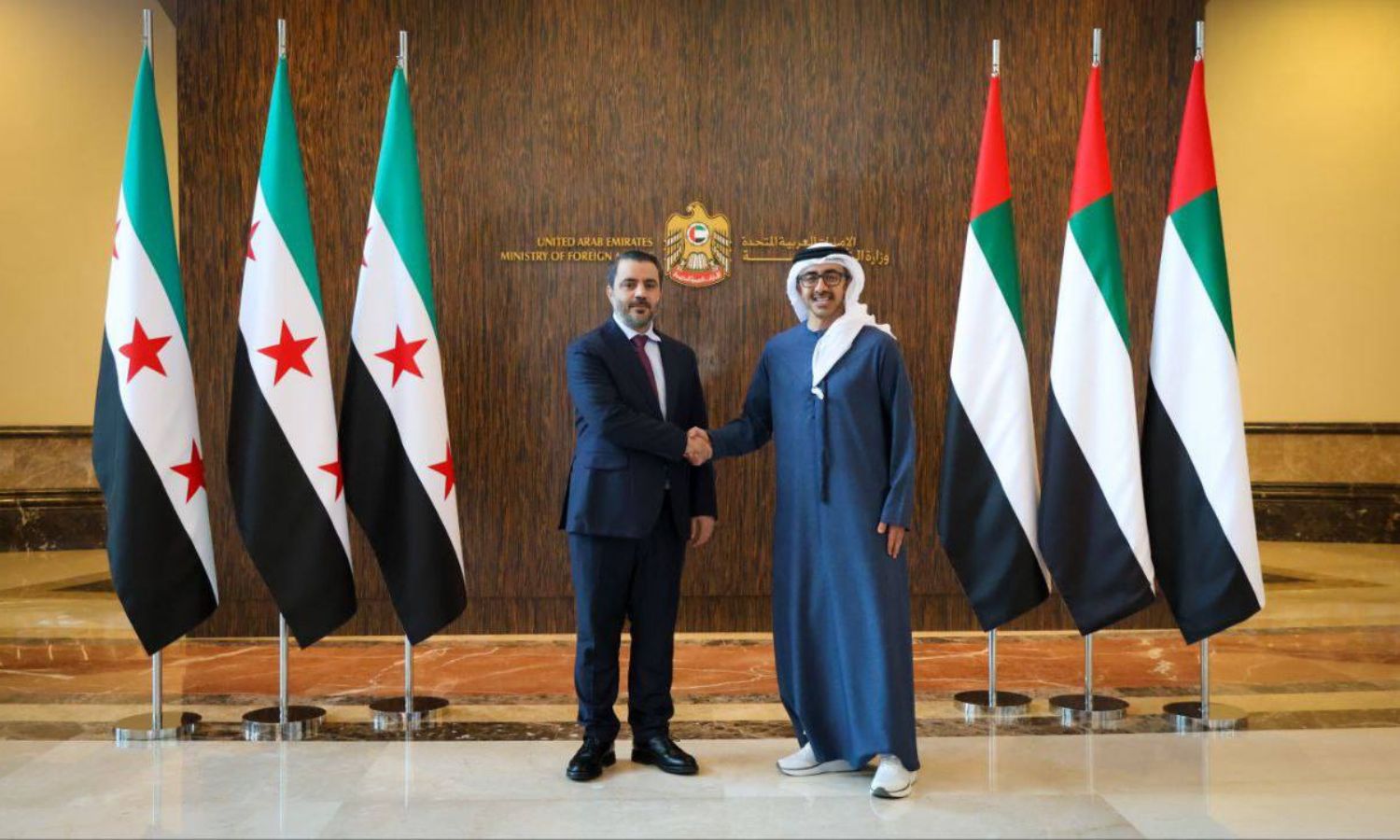Following the dramatic fall of Bashar al-Assad’s regime in December 2024, Syria has entered a new phase of political transition. This shift has prompted a wave of renewed diplomatic engagement from countries that had long distanced themselves during the years of civil war. Among Arab states, Qatar and Saudi Arabia moved swiftly to welcome Syria’s transitional government. In sharp contrast, the United Arab Emirates has taken a slower, more cautious path—marked by quiet diplomacy and measured signals of interest.
A Cautious Contrast
While Qatar’s Emir Tamim bin Hamad Al Thani made a landmark visit to Damascus in January, and President Ahmad al-Sharaa chose Riyadh for his first foreign trip in early February, the UAE has yet to send a high-level delegation to Syria. Instead, it has opted for limited diplomatic exchanges. A phone call between UAE Foreign Minister Sheikh Abdullah bin Zayed Al Nahyan and his Syrian counterpart Asaad al-Shibani in December 2024 marked the first official communication, followed by a congratulatory message from UAE President Mohammed bin Zayed Al Nahyan to President al-Sharaa after his inauguration.
This deliberate restraint has not gone unnoticed. Experts suggest that the UAE’s approach reflects deeper strategic calculations—most notably its enduring concern over the rise of Islamist actors in regional governments. President al-Sharaa’s past associations with jihadist movements have only reinforced these anxieties in Abu Dhabi.
Strategic Realignment in Progress
According to international relations analyst Mahmoud Alloush, the UAE had been actively working to rehabilitate Assad’s regime on the regional stage prior to the regime’s collapse. Assad’s fall disrupted those efforts and forced a reevaluation. The UAE, he argues, is now cautiously exploring avenues of engagement with the new administration, recognizing that forging ties may be the most effective way to influence Syria’s future trajectory—particularly to contain Islamist resurgence.
Political analyst Talaat Taha adds that despite not breaking ties with Syria before or after the transition, the UAE is unwilling to invest heavily in a country where political and security uncertainty still prevails. Continued violence in coastal areas, a surge in displacement, Israeli military incursions, and the disbanding of the Syrian army have contributed to an atmosphere of strategic ambiguity. The UAE, a major investor globally, is waiting for clearer signals of stability before committing its resources.
Diplomatic Outreach: Breaking the Ice
Still, recent months have seen tentative steps toward engagement. In early January, Foreign Minister Asaad al-Shibani visited the UAE and met with Sheikh Abdullah bin Zayed. A follow-up meeting occurred on the sidelines of the World Government Summit in Dubai on February 11, where discussions focused on Syrian reconstruction and regional stability. Al-Shibani also met with prominent members of the Syrian business community in the Emirates, signaling a mutual interest in exploring economic partnerships.
These visits, observers say, are part of a calculated effort by the Syrian government to build trust with the UAE and reassure it of the transitional administration’s direction. According to Alloush, if President al-Sharaa demonstrates a commitment to pragmatic and inclusive governance, the UAE may respond with greater diplomatic and economic support.
A presidential visit from al-Sharaa to the UAE is reportedly being planned—an event that could mark a turning point in bilateral relations. Alloush believes such a visit would not only solidify a new chapter in Emirati-Syrian ties but also indicate that Abu Dhabi is willing to move from cautious observation to active engagement.
Echoes of Hesitation from Cairo
The UAE’s position is not isolated. Egypt has shown similar restraint in its dealings with the new Syrian leadership. Its first formal contact came only at the end of December 2024, through a phone call between Egyptian Foreign Minister Badr Abdel Aaty and his Syrian counterpart.
Both Egypt and the UAE share a deep mistrust of political Islam and remain wary that Syria’s transformation could reignite momentum for Islamist movements across the region. Following the fall of Egypt’s Muslim Brotherhood-led government and the rollback of Islamist influence in Tunisia and elsewhere, both nations are reluctant to support a transition in Syria that could empower similar forces.
Talaat Taha notes that Egypt, like the UAE, is carefully monitoring developments in Syria before advancing its engagement. Without internal political consolidation and security stabilization, he argues, neither Cairo nor Abu Dhabi is likely to take bolder steps toward partnership.
Waiting for Syria’s Next Chapter
Despite these reservations, regional dynamics are clearly shifting. Syria is slowly being reintegrated into the Arab political ecosystem, as more countries signal a willingness to reopen diplomatic channels and support post-conflict recovery. The Emirates’ caution, while reflective of longstanding strategic concerns, may gradually give way to deeper cooperation—especially if Syria’s transitional leadership demonstrates credible governance and a clear departure from ideological extremism.
In the end, the UAE’s future relationship with Syria is not a question of whether, but when—and under what conditions. As Syria charts its path forward, the Emirates appears poised to engage—but only on its own terms.
This article was translated and edited by The Syrian Observer. The Syrian Observer has not verified the content of this story. Responsibility for the information and views set out in this article lies entirely with the author.


